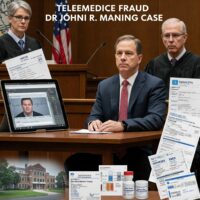With all of the furor over the subprime mortgage debacle, a number of individuals and groups are taking a closer look at the loans that made the mess possible. Adjustable rate mortgages, interest only loans, and their variations are estimated at $3.5 trillion now, and they are partly to blame for the record foreclosure rates. One occasionally-proposed method to dealing with the crisis is simply to make these types of loans illegal. Although that may sound like a plausible solution, it does not address the more fundamental causes of the foreclosure problem.
First of all, these types of mortgages have not been made illegal because they are voluntary contracts entered into between two consenting parties (the homeowners and the banks) who each had time to review, negotiate, or reject the contract before it was signed. Nothing illegal has been done in the vast majority of adjustable rate mortgages and many homeowners who have adjustable rate mortgages were able to pay them off or keep up with the payments. Eliminating an entire type of voluntary contract that is extremely useful and appropriate in certain situations does not eliminate the possibility that any other type of contract will be used when it is least appropriate. The contract itself, therefore, is not the problem, but how and for what purpose it was relied upon.
By far the largest percentages of people facing foreclosure are losing their homes because of a loss in income or medical problems. Less than 5% actually lose their homes because of a payment resetting, although it may contribute if there is another hardship. The subprime loans and resetting payments are significantly contributing to a sense of despair in the economy, and even a small decrease in the amount of people looking for new homes will begin to create a snowball effect, dragging down property values and decreasing profits developers can make from building new houses. So, the irrational fears created by these types of loans are creating instability in the market, but the usual causes of foreclosure still remain the overwhelming reason homeowners face foreclosure.
This is not to say that certain events during the mortgage application process may not have been unlawful, and fraud and negligence were obviously involved in some cases in order to pump up profits and take advantage of the real estate bubble. Specific aspects of creating contracts are illegal if they are discovered, such as disclosing material facts, not using intimidation, not giving contracts to people who can not reasonably enter into them, and making contracts with minor, to name a few. But when a husband and wife apply for a mortgage loan, sign disclosure statements that the rate will increase after 2 years, and state that they understand the terms of the contract, when they have not had the documents reviewed by an attorney or on their own, then problems will come up. The question is, who is responsible for making sure the homeowners understand what they are getting into? Obviously, no one except the homeowners can be certain if they understand completely or not, so it is up to them to raise any questions before going through with the mortgage. Otherwise, the bank will take silence to mean consent.
Again, these specific types of mortgage contract are not the real problem. More is going on in terms of lack of financial education, homeowners (and banks) not understanding how contracts work nor how to read them, and simple greed on the part of everyone involved. However, anyone who was pressured into getting an ARM or fraudulently induced into a loan should have some legal recourse to have the mortgage nullified and the lender punished. If these issues were addressed from the perspective of contract law, rather than just seeing homeowners who simply can not pay the mortgage, more than a voluntary federal program would be offered. But banks often have little to fear from lawsuits, as they hold more financial power and legal expertise than the average homeowner.
Outlawing a certain type of mortgage contract in an effort to protect homeowners from their own failure to understand the agreement they are entering into is no guarantee that the same problem will not crop up again in other areas. It is the underlying causes that need to be addressed, with community solutions and private education available to provide potential loan applicants with information necessary to evaluate the contracts they are considering. If this is not possible, and homeowners do not understand the mortgage, they need to have it reviewed by competent legal counsel. This can often be done for a few hundred dollars with the fees rolled into the new loan. Lawyers, though, should make certain the loan applicants understand the ramifications of the contract, though, and not just explain what it is while ignoring how it may play out over time. Homeowners themselves also need to plan for an uncertain future by establishing an emergency fund, saving as much as possible, and learning to live without extravagance if they have no self-insurance against the next inevitable financial hardship.












